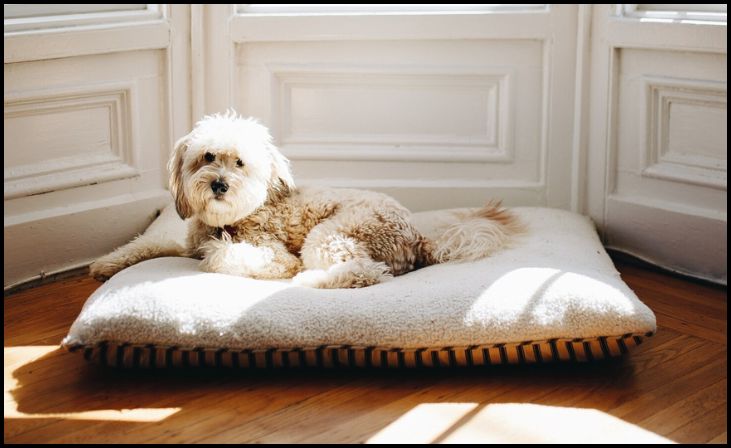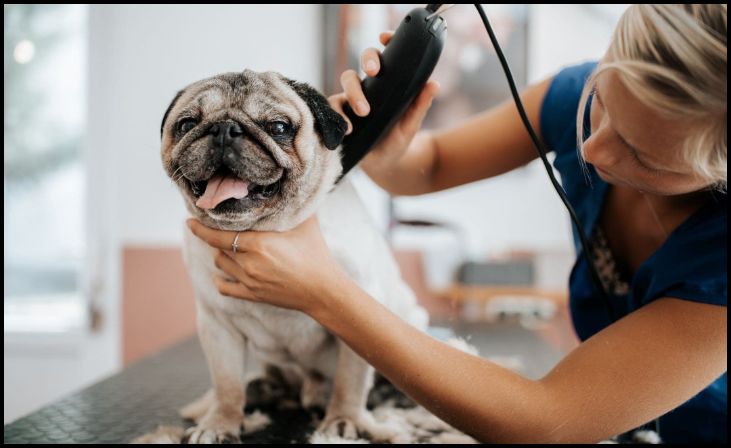A critical decision that can have a substantial impact on both your life and the life of your prospective pet is selecting the appropriate dog breed to fit your lifestyle. Dogs come in various sizes, temperaments, and energy levels, and understanding these differences can help you find a breed that matches your living situation, activity level, and personal preferences. Factors such as space availability, time commitment, and even family dynamics play a vital role in this decision-making process. This guide aims to provide comprehensive insights into selecting the appropriate dog breed for your lifestyle, ensuring a harmonious and fulfilling relationship with your canine companion.
9-Dog Breed For Your Lifestyle
Assessing Your Living Space
Your living space is one of the most critical factors in determining the best dog breed for you. If you reside in a small apartment, large breeds like Great Danes or Saint Bernards might not be ideal due to their size and need for space. Instead, consider smaller, more adaptable breeds such as French Bulldogs or Pugs that thrive in confined spaces and have lower exercise requirements. Conversely, if you have a spacious home with a large yard, you might opt for more active breeds like Golden Retrievers or Border Collies that enjoy running and playing outdoors. Evaluating your living space helps ensure your dog has enough room to move comfortably, reducing stress and promoting a healthy, active lifestyle.

Considering Your Activity Level
Your activity level is another essential aspect to consider when choosing a dog breed. High-energy breeds like Huskies, Australian Shepherds, and Jack Russell Terriers require plenty of physical and mental stimulation. They are ideal for active individuals who enjoy outdoor activities such as hiking, running, or playing fetch. Conversely, if you favor a more leisurely lifestyle, breeds such as Basset Hounds, Bulldogs, or Shih Tzus may be more appropriate. These dogs are content with shorter walks and more downtime. Matching a dog’s energy level with your own ensures both you and your pet can enjoy activities together without one of you feeling overwhelmed or neglected.
Read Also: 9 Indoor And Outdoor Exercise Ideas For Dogs
Family Dynamics and Social Needs
The composition and dynamics of your family also play a crucial role in selecting the right dog breed. Families with young children might benefit from breeds known for their patience and gentleness, such as Labrador Retrievers, Beagles, or Cavalier King Charles Spaniels. These breeds are typically friendly, tolerant, and enjoy interacting with children. If you have other pets, consider breeds known for their sociability and ability to get along well with other animals, like Golden Retrievers or Cocker Spaniels. Additionally, single individuals or couples might prefer more independent breeds such as Shiba Inus or Chow Chows, which can be left alone for longer periods without feeling anxious or distressed.
Grooming and Maintenance Requirements
Grooming and maintenance requirements vary significantly across different dog breeds and should be considered when making your decision. Breeds with long, thick coats, such as Poodles, Afghan Hounds, and Shih Tzus, require regular grooming to prevent matting and keep their coats healthy. These breeds often need professional grooming services, which can be time-consuming and costly. Short-haired breeds like Boxers, Dobermans, and Dalmatians require less frequent grooming but still need regular brushing to keep their coats in good condition. Additionally, consider breeds with minimal shedding, such as Portuguese Water Dogs or Maltese, if you have allergies or prefer a cleaner home environment. Understanding the grooming needs of a breed helps ensure you can commit to the necessary care routine.

Health and Longevity Considerations
Health and longevity are important factors when choosing a dog breed. Some breeds are predisposed to certain health issues, which can affect their quality of life and lifespan. For instance, Bulldogs and Pugs are prone to respiratory problems due to their brachycephalic (short-nosed) structure, while large breeds like German Shepherds and Great Danes are susceptible to hip dysplasia. Researching breed-specific health issues and consulting with a veterinarian can provide valuable insights into potential health concerns and the overall life expectancy of a breed. Opting for a breed with fewer genetic health problems and a longer lifespan can lead to a healthier, happier life for your pet and reduce the emotional and financial strain of dealing with chronic health conditions.
Temperament and Behavioral Traits
Temperament and behavioral traits are critical in determining how well a dog will fit into your lifestyle. Certain breeds are recognized for their outgoing and affable dispositions, which render them ideal companions for families or individuals who are social. Breeds like Golden Retrievers, Labrador Retrievers, and Beagles are typically affectionate, loyal, and enjoy interacting with people. In contrast, breeds such as Chihuahuas, Dachshunds, and Basenjis can be more reserved or independent, which might be preferable for individuals who appreciate a more low-key pet. Additionally, consider the breed’s trainability and intelligence, as some dogs are easier to train and more responsive to commands, making them suitable for first-time dog owners.
Financial Commitment
Owning a dog involves a significant financial commitment that varies depending on the breed. Food, hygiene, veterinary care, and pet insurance comprise the expenses. Larger breeds generally require more food, which increases monthly expenses. Breeds prone to health issues may incur higher veterinary bills. Additionally, breeds that need regular grooming, like Poodles or Shih Tzus, add to the overall cost. It is imperative to assess your financial situation and confirm that you can afford the continuous expenses associated with the breed you are considering. Planning for these costs helps prevent financial strain and ensures you can provide the necessary care for your pet throughout its life.

Research and Resources
Thorough research is crucial when deciding on the appropriate dog breed for your lifestyle. Utilize resources such as breed-specific websites, forums, and books to gather information about different breeds. Speaking with breeders, veterinarians, and dog owners can also provide valuable insights and firsthand experiences. Additionally, consider visiting dog shows or shelters to interact with various breeds and observe their behavior and temperament. Adopting from shelters or rescue organizations is another option, offering the opportunity to give a dog in need a loving home while potentially finding a mixed breed that fits well with your lifestyle.
Read Also: 9 Best Practices For Training With Dogs
Conclusion
Choosing the right dog breed for your lifestyle is a thoughtful process that involves assessing various factors such as living space, activity level, family dynamics, grooming needs, health considerations, temperament, and financial commitment. By taking the time to evaluate these aspects and conducting thorough research, you can find a breed that complements your lifestyle and brings joy and companionship to your life. Remember, the goal is to ensure a harmonious and fulfilling relationship with your dog, leading to a happy and healthy life together.
FAQs
What dog breeds are best for small apartments?
Breeds like French Bulldogs, Pugs, and Dachshunds are well-suited for small apartments due to their smaller size and lower energy levels. They adapt well to confined spaces and have minimal exercise requirements.
How do I determine if a breed is good with children?
Researching a breed’s temperament and reading reviews from other dog owners can provide insights. Breeds known for their patience and gentleness, such as Labrador Retrievers and Beagles, are often recommended for families with children.
What should I consider regarding a dog’s grooming needs?
Consider the breed’s coat type and grooming requirements. Long-haired breeds like Shih Tzus need regular grooming, while short-haired breeds like Dalmatians require less frequent maintenance. Understanding these needs ensures you can commit to the necessary care routine.



